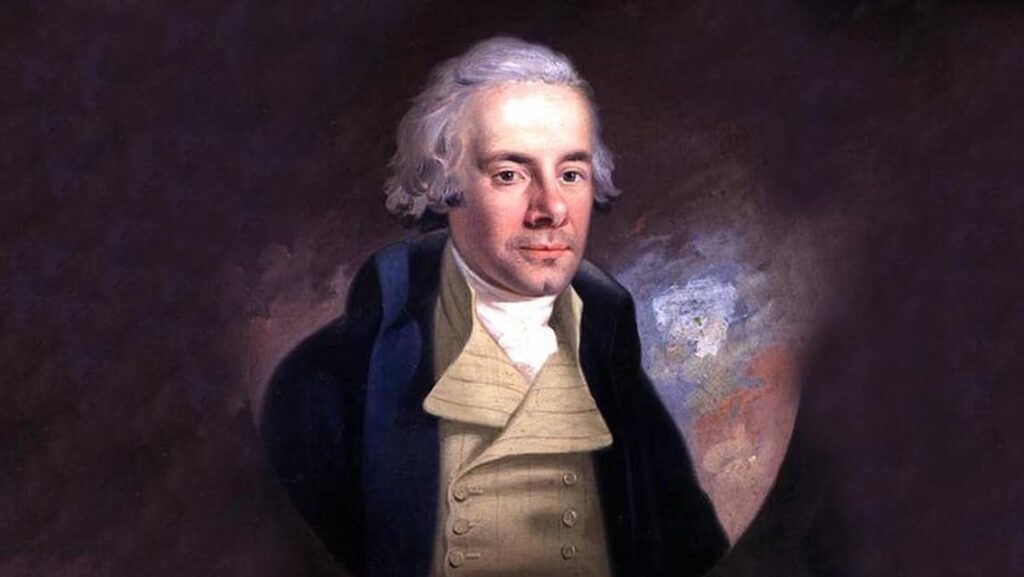It is well known that William Wilberforce was one of the most impactful and prolific Christian politicians in history. But because of popular, pro-life mythology, it is less well-known that he is also one of the most prolific anti-incrementalists in history.
If you read pro-life intellectuals–from Scott Klusendorf to Jonathan Van Maren to Clarke Forsythe–you will find Wilberforce confidently claimed for the incrementalist side. The line from this crowd is that Wilberforce was an immediatist in principle but an incrementalist in practice. Klusendorf, for instance, writes: “William Wilberforce was in principle firmly committed to the complete and immediate abolition of slavery, but in practice he functioned as a strategic and tactical incrementalist.”
It takes more than confidence to make this claim; it takes dishonesty. Wilberforce himself repudiated incrementalism in the strongest possible terms; as strong as any employed by abortion abolitionists.
In his 1807 book, A Letter on the Abolition of the Slave Trade, Wilberforce wrote [emphasis ours]:
[L]et me most seriously urge on the conscientious deliberations of those who…by their fatal proposal of gradual, instead of immediate abolition, dashed the cup of happiness from the lips of the wretched African, at the very moment when at last he appeared likely to taste it, and who thus proved in fact the most efficient supporters of the Slave Trade. A vast majority in Parliament were then so much alive to the principles of justice and humanity, that all direct opposition would have been utterly ineffectual. But this kind of half measure, however unintentionally, exactly answered the purpose of our enemies, by giving time for the zeal of men to cool, and providing an expedient by which, aided by a little of that self deception which we are all apt to practice on ourselves on suitable occasions, they might feel the complacencies arising from an act of justice and humanity, without paying the price or making the sacrifice which those principles required.
Let me be forgiven if I speak strongly, where I feel so very deeply. It is not only because the gradual Abolitionists have been, in fact, the only real stay of that system of wickedness and cruelty which we wish to abolish; though that assertion is unquestionably true; but it is trying beyond expression that they should be the real maintainers of the Slave Trade. [p. 294-295]”
History is sometimes complex and difficult to decipher. But not always. Wilberforce’s magnum opus on abolitionist strategy provides us irrefutable proof of his views on the matter.
The question (if there even is one) of what side Wilberforce would come down on regarding the modern pro-life-versus-abolitionist debate is made even less ambiguous by the fact that he refuted explicitly accusations from some of his contemporaries that he was an incrementalist. Responding to claims that he and abolitionists had been “unfaithful to their own [immediatist] principles” he writes:
It scarcely would be requisite to expose the sophistry of this argument, if it had not sometimes proceeded from men of understanding, whose use of it however can only be accounted for by the supposition, that they are utterly unacquainted with the circumstances of the case. [p. 257]”
This is not simply a refutation of the claim; it is a biting attack on men making the precise claim about him that Klusendorf and Forsythe make today. It is difficult to imagine how Wilberforce could have more plainly taken the immediatist side.
“But,” the incrementalists claim, “Wilberforce supported regulating how many slaves were allowed on a slave ship, didn’t he?” Radio host and LifeSiteNews writer Jonathan Van Maren argued as much while on a pro-life podcast: “[Abortion abolitionists] are not Wilberforce abolitionists. They talk about him a lot but Wilberforce was by definition an incrementalist. The Dolben bill that restricted the size of slave ships is like the brain child for the laws regulating abortion clinics.”
Once again, the pro-life incrementalists run into the problem that Wilberforce’s writings refute their claim in the strongest and clearest imaginable terms. In A Letter on the Abolition of the Slave Trade, Wilberforce writes of the Dolben Act that “the Slave-carrying bill [was] a measure which a very few years after was acknowledged, as it is still universally confessed, to have been beneficial to [the West Indian traders].[p.275]” Wilberforce later calls the idea that the Dolben Act helped eradicate slavery a “delusion.”
In Bury the Chains, abolitionist historian Adam Hochschild writes that beyond Wilberforce, even the British abolitionists more broadly, opposed the Dolben Act: “The abolition committee feared Dolben’s bill would establish, as one member put it, ‘the Principle that the trade was in itself just but had been abused. [p.140]”
While they can’t claim Wilberforce for their cause, modern pro-lifers resemble to a tee another character in the story of British abolition: Henry Dundas.
In 1792, Wilberforce introduced the Abolition of the Slave Trade Act, to which Dundas responded by amending the bill so that it would make the children of slaves free and declare that the matter of abolition would be taken up at an undetermined later date. In essence, he was amending it from an immediatist bill to an incrementalist bill. He stood before parliament and declared: “My honourable friends… have very known that I have long entertained the same opinion with them as to the Abolition of the Slave Trade, though I have differed from them as to the mode of effecting it…[T]he point of difference between us is this: I cannot help doubting as to the prudence or practicability of the mode of abolishing it, as proposed by [Wilberforce].”
Dundas’ amendment passed, and abolition was delayed by another 15 years. This was Dundas’ first public action regarding slavery and began his campaigning for the gradual abolition of the slave trade, which, during the subsequent years, would compete for support against Wilberforce’s efforts for immediate abolition.
We have seen nearly this exact scenario play out countless times in the abortion battle. For instance, in Texas in 2019, pro-life State Rep. Jeff Leach killed the Abolition of Abortion in Texas Act, but before he did so, he made sure to author an incremental pro-life bill. The pro-life bill passed, the pro-life groups gave him awards, and babies continued to be slaughtered in Texas because he killed the abolition bill. Same deal with Senator Greg Treat in Oklahoma. It is often the very pro-life legislators responsible for preventing abolition who make certain to author and pass pro-life legislation at the time of their treachery in an attempt to maintain credibility. Passing half-measures is the only way to save pro-life careers from the fallout of not abolishing abortion.
It is clear that the Pro-Life Movement is Henry Dundas, not William Wilberforce, and among serious, honest people, it is not up for debate. He wrote A Letter on the Abolition of the Slave Trade so that future abolitionists could learn the lessons he learned and he was perfectly perspicuous regarding what those lessons were. We need to learn those lessons.
This subject came up in our recent debate with Babylon Bee editor Joel Berry. Watch the clip regarding Wilberforce below and watch the full abolitionist versus pro-life debate here.





